A new therapeutic approach which merges the four existing main approaches to psychotherapy, namely, psychoanalytic, cognitive, behavioral and existential, into one holistic approach called Conscious Therapy.
BALTIMORE (PRWEB) July 30, 2018
In a ground-breaking new book, Conscious-the Art of Being, psychotherapist and motivational speaker, Yisroel Roll, unveils Conscious Therapy, the Unified Master Theory of Everything in Psychotherapy. Innovative, life-enhancing, and scientifically tested, Roll’s new therapeutic approach merges the four existing main approaches to psychotherapy, namely, psychoanalytic, cognitive, behavioral and existential, into one holistic approach called Conscious Therapy. This new approach to therapy and self-knowledge reveals the driving force of personality, called “consciousness,” which is achieved through self-understanding, selfhood and identity formation.
This book is for the general public, psychotherapists, social workers, and educators, and will help readers discover:
- Who you are
- Your core self
- Your core values
- How to access your subconscious-mind, at will
- How to heal the unfinished business and unresolved issues of your childhood
- How to heal from emotional pain and move on with your life
- Serenity
- How to ground and center yourself when you are faced with a life challenge
- How to self-actualize and achieve your potential
Conscious Therapy comprises a seven-step experiential therapeutic system which establishes the “Conscious Self” through awareness of the cognitive, emotional and behavioral dimensions of “self,” as follows:
1. Wheel of Strengths—Cognitive awareness of the clients’ intellect, social skills, character traits, spirituality, family contribution and personal growth.
2. Soul State—an emotional guided imagery experience which places the client in a holistic, positive frame of experiencing the “self.”
3. Circle of Control—a behavioral awareness of what the client can do to respond to stimuli and events which are outside her locus of control, by accessing those thoughts, actions, words and reactions, which are inside the client’s locus of control.
Defending the Conscious Self from Cognitive and Emotional Attacks:
4. Thought Highway—Client practices a mindfulness technique to recognize and allow negative thoughts to pass like trucks on a highway.
5. Becoming aware of Cognitive Distortions and replacing the distorted thinking with a positive mantra or affirmation
6. Inner Child—Becoming aware of and healing the emotional pain, and unfinished business of childhood emotional pain so that the Inner Child no longer controls the Adult Self.
Choosing Love over Fear; Achieving Consciousness by Choosing to Operate with Free Will
7. Client chooses the approach of self-love and validation over the paralyzing fear of anxiety.
The interactive strategies and techniques presented to the client require him to perform daily homework journaling exercises.
The book includes a study which examines the impact of Conscious Therapy on clients suffering from Generalized Anxiety Disorder. A sample of 30 patients who are suffering from Generalized Anxiety Disorder were selected to receive bi-weekly sessions of Conscious Therapy over a period of five months, for a total of ten sessions. For data collection The Hamilton Anxiety Rating Scale (HAM-A) and the Rosenberg Self-esteem Scale were used. The results indicated that those patients who performed the weekly homework of Conscious Therapy during and between therapy sessions, reduced their self-reported anxiety symptoms by 3-81%. Those patients who did not perform the weekly Conscious Therapy homework did not reduce their anxiety symptoms.
The study’s major findings revealed that adherence to a program designed to increase consciousness was a predictor of reduced anxiety and better interpersonal functioning. Consciousness of a client’s cognitive, emotional and behavioral dimensions leads to “selfhood.” When a client discovers a sense of “self,” she can more readily cope with and handle a presenting challenge by marshalling her cognitive, emotional and behavioral strengths to solve or to cope with the challenge; this reduces the anxiety attendant upon the stressful process of dealing with a psychosocial stressor.
Physicists have been seeking the Theory of Everything (ToE) in Physics (also known as the Grand United Theory, Final Theory, Ultimate Theory, or Master Theory) which is a hypothetical single, all-encompassing, coherent theoretical framework of physics that fully explains and links together all physical aspects of the universe. One of the major unsolved problems in physics, scientists are now trying to find the underlying Theory of Everything to combine General Relativity and Quantum Field Theory into one unifying theory.
The author suggests that Conscious Therapy is the Theory of Everything in psychotherapy because it is an all-encompassing Experiential/Gestalt therapeutic approach which teaches a client about “selfhood” and the components of self, namely his mind, feelings and actions. The feelings are the central, driving force of personality, and Conscious Therapy guides a client to make a “conscious choice” between reacting with an instinctive, impulsive body response, or, reacting with a mind-based, thoughtful, cognitive response. Conscious Therapy helps a client access the “self” or “I,” in order to direct the “me,” and to react to the crisis or challenge in a conscious, healthy manner, thus reducing anxiety that is usually associated with dealing with stressful situations.
The book is an outgrowth of Yisroel Roll’s twenty years of individual and group counseling experience.





